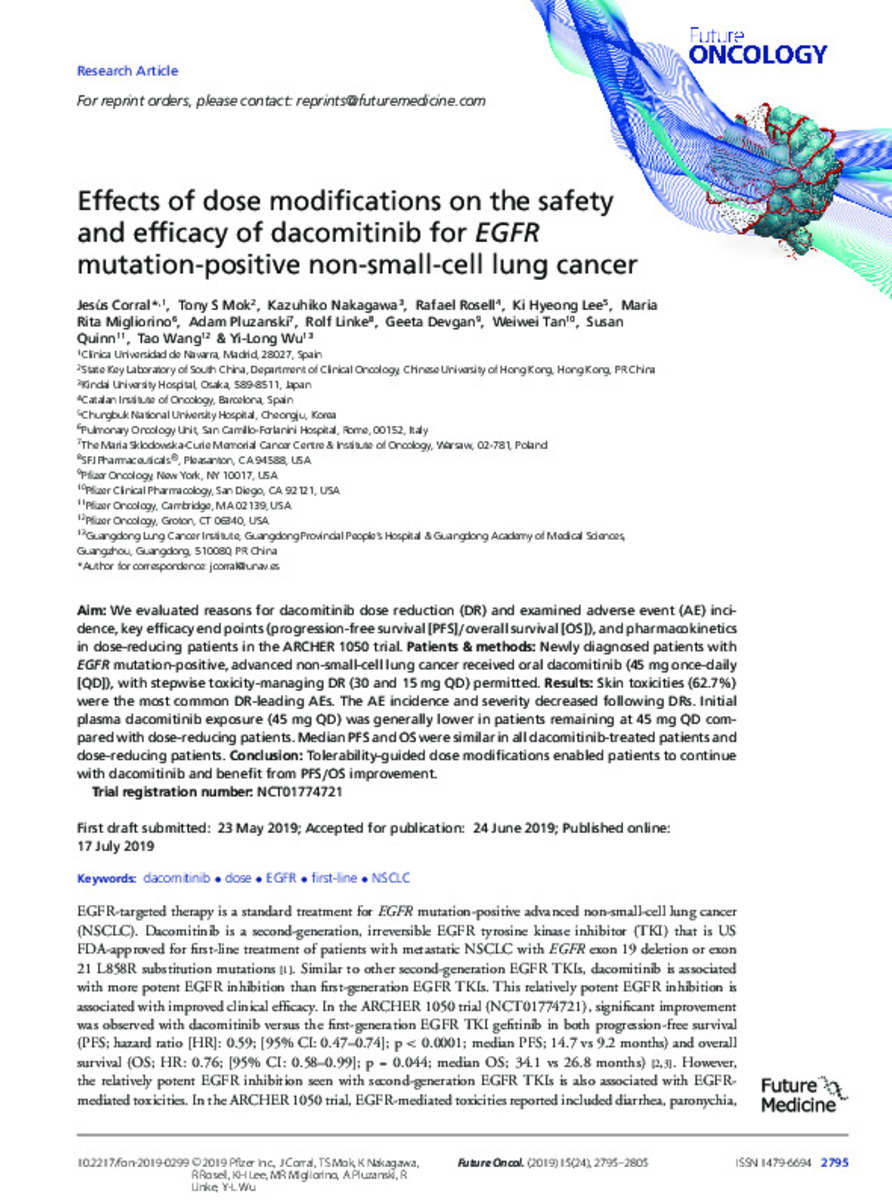Effects of dose modifications on the safety and efficacy of dacomitinib for EGFR mutation-positive non-small-cell lung cancer
Keywords:
Materias Investigacion::Ciencias de la Salud::Oncología
EGFR
NSCLC
Dacomitinib
Dose
First-line
Publisher:
Future Medicine Ltd
Note:
This work is licensed under the Attribution-NonCommercial-NoDerivatives 4.0 Unported License. To view a copy of this license, visit http://creativecommons.org/licenses/by-nc-nd/4.0/
Citation:
Corral-Jaime, J. (Jesús); Mok, T.S. (Tony S.); Nakagawa, K. (Kazuhiko); et al. "Effects of dose modifications on the safety and efficacy of dacomitinib for EGFR mutation-positive non-small-cell lung cancer". Future Oncology. 15 (24), 2019, 2795 - 2805
Statistics and impact
0 citas en

0 citas en

Items in Dadun are protected by copyright, with all rights reserved, unless otherwise indicated.







